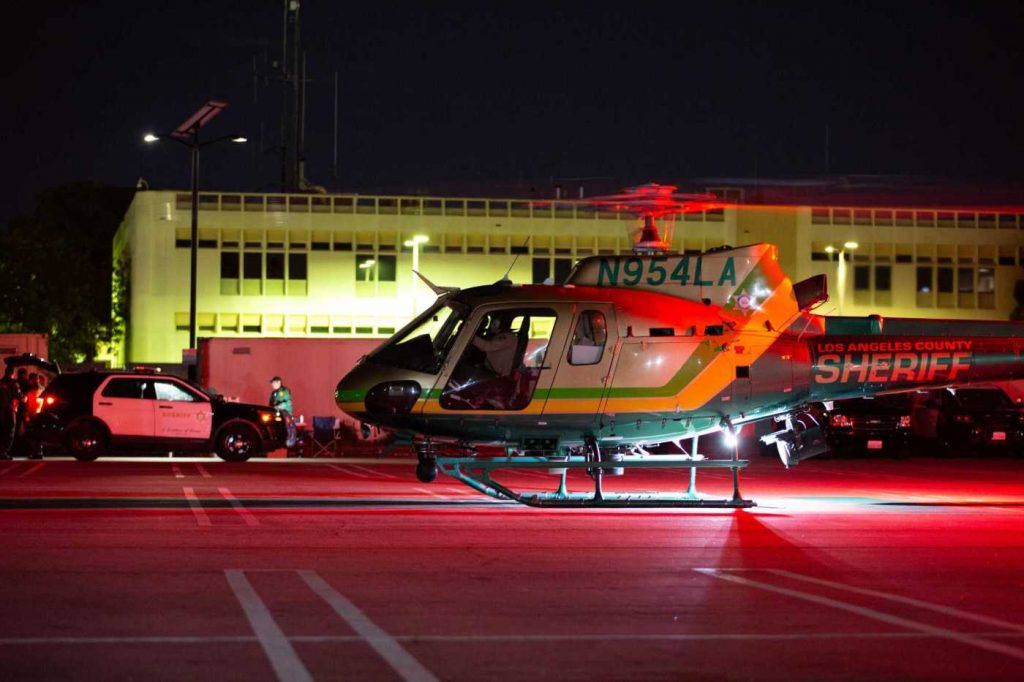The March 5 California primary is over. And now the waiting begins.
In Los Angeles County, the registrar’s office released its semi-official results around 2 a.m. Wednesday, March 5, and then its first post-election day update in the afternoon. But there are still a lot of outstanding ballots — including those that haven’t arrived in the mail yet.
See the latest election results.
County election officials across the state must certify the results of the vote by April 4, 30 days after the primary. The LA County registrar is tentatively scheduled to certify election results a few days earlier than that, on March 29. The California secretary of state will certify the results by April 12.
In contrast, Arizona, which holds its primary on March 19, two weeks after California, will finalize its results by April 8. That’s 10 days faster than California. In Nevada, the entire process for the Feb. 6 primary election was 10 days.
Ballots are processed, verified and counted at the LA County Ballot Processing Center in City of Industry on Tuesday, March 5, 2024. (Photo by Keith Birmingham, Pasadena Star-News/ SCNG)
So why does it take so long for California to finalize election results?
First, the state has more registered voters — more than 22 million, as of Feb. 20 — than any other. That’s because California, already the most-populous state, makes it so easy for citizens to be able to vote.
“In the last three elections, six to eight times more voters voted on the mail-in ballot than in person,” said Stephenie Shea, San Bernardino County’s registrar of voters. “That requires additional time than in-person ballots.”
In the November 2022 election, 87.52% of voters voted by mail, according to the California secretary of state. In Riverside County, 90.11% of voters voted by mail in that election, 85.52% of San Bernardino County voters did so, as did 80.16% of Los Angeles County voters.
Voting by mail has been popular in California for years. But it got a big shot in the arm with the coronavirus pandemic. To avoid exposing voters — and poll workers, many of them older volunteers — to COVID-19, every registered voter in California was issued a ballot by mail. The practice continues four years later.
Ballots have to be postmarked by election day.
But it can take time for ballots to arrive by mail, especially when sent by Californians living out of state or overseas, such as military personnel. Ballots postmarked by election day are accepted as late as March 12. The secretary of state recommends military personnel mail their ballots weeks or months in advance. Those on a ship at sea are advised to return their ballots by Jan. 27 to make sure they’re counted in time.
But most people vote closer to election day. And that creates a bottleneck that slows the count down. Vote-by-mail ballots can begin to be processed up to 29 days before election day, according to the secretary of state. But the results cannot be made public until after polls close on election day.
When the Los Angeles County registrar’s office released its semi-official results Wednesday morning, it had processed 910,857 ballots, slightly more than 16% of eligible voters. And of those, nearly 66% were vote-by-mail ballots. The number of counted ballots ticked up slightly by Wednesday afternoon, to 1,016,574, or nearly 18% of eligible voters. Of those, 69% were mail-in ballots.
And there were still a lot of outstanding ballots, according to the registrar’s office.
“Large quantities of Vote by Mail ballots returned at Vote Centers and in Drop Boxes today,” the agency said in a Tuesday evening post on X, formerly Twitter. “This will bump up overall turnout.”
Once the ballots arrive, local elections offices have to verify the signatures on the mail-in ballots belong to registered voters and that no one is voting twice. If there’s any question, workers contact the registered voters to confirm the ballot was really sent in by the voter. Some of that can be done by computer. But ultimately, a lot of humans are needed. And if there are possible issues at a polling place, humans are required to do hand recounts. That’s a process that can take up to 30 days, according to the secretary of state.
Provisional ballots are issued at polling sites when there’s a question about whether someone can vote at a given location. Those can also take longer to process, though Michael Sanchez, spokesperson for the LA County registrar’s office, said last month that provisional ballots are a fraction of the overall tally.
Californians can also register to vote and cast conditional ballots on election day, which slows things down as well.
Since the last election, the San Bernardino County Registrar of Voters has tried to streamline the process to speed things along this year.
“We’ve purchased additional tabulators,” Shea said, “and we’ve also been able to employ additional staff to improve our processing time.”
Workers prepare to process, verify and count ballots at the LA County Ballot Processing Center in City of Industry on Tuesday, March 5, 2024. (Photo by Keith Birmingham, Pasadena Star-News/ SCNG)
Los Angeles County, meanwhile, debuted a massive new ballot processing center this election. That 144,000 square-foot facility centralized processing, eliminating the need to transport ballots to multiple sites and allowing the public to observe all steps of the counting process.
When the county initially expanded its vote-by-mail program during the pandemic, ballots were processed at the Pomona County fairgrounds, counted at the county clerk’s Downey office and then stored at the clerk’s election operations center in Santa Fe Springs, Registrar Dean Logan said during last month’s ribon-cutting ceremony for the new facility.
“Those activities are now all consolidated here, so you can actually see, from beginning to end, the processing of the ballots,” Logan said. “I think that is a bold and important thing.”
But whether the centralized procedures will speed up the official canvass is unclear. The press release announcing the semi-official results, after all, came out around the same time this year as during the 2022 primary.
Either way, though, there’s still a lot of waiting to do before the election results are final.
Staff writers Chris Haire and Clara Harter contributed to this report.


